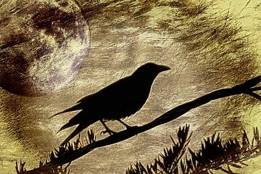-
Definition
-
Definition
-
Did you know?
-
Synonyms
-
Example Sentences
-
Word History
-
Related Articles
-
Podcast
-
Entries Near
-
- To save this word, you'll need to log in.
Did you know?
If you are aghast, you might look like you've just seen a ghost, or something similarly shocking. Aghast traces back to a Middle English verb, gasten, meaning "to frighten." Gasten (which also gave us ghastly, meaning "terrible or frightening") comes from gast, a Middle English spelling of the word ghost. Gast also came to be used in English as a verb meaning "to scare." That verb is now obsolete, but its spirit lives on in words spoken by the character Edmund in William Shakespeare's King Lear: "gasted by the noise I made, full suddenly he fled."
Synonyms
Examples of aghast in a Sentence
 John Meyer, The Denver Post, 8 Feb. 2025
Mahler’s friends were aghast, but the man himself laughed.
—
John Meyer, The Denver Post, 8 Feb. 2025
Mahler’s friends were aghast, but the man himself laughed.
— Alex Ross, The New Yorker, 3 Feb. 2025
But the original meaning is quite clear: The amendment's draftsmen would have been aghast at the notion that people who broke our laws and entered our soil illegally could then be afforded automatic birthright citizenship for their children.
—
Alex Ross, The New Yorker, 3 Feb. 2025
But the original meaning is quite clear: The amendment's draftsmen would have been aghast at the notion that people who broke our laws and entered our soil illegally could then be afforded automatic birthright citizenship for their children.
— Newsweek, 31 Jan. 2025
But Guibert says her son never embraced fame and was aghast at being named to People Magazine’s 50 Most Beautiful list.
—
Newsweek, 31 Jan. 2025
But Guibert says her son never embraced fame and was aghast at being named to People Magazine’s 50 Most Beautiful list.
— Tatiana Siegel, Variety, 23 Jan. 2025
See all Example Sentences for aghast
Tatiana Siegel, Variety, 23 Jan. 2025
See all Example Sentences for aghast 

Word History
alteration (with h after ghastly, ghost entry 1) of Middle English agast, from past participle of agasten "to frighten, become frightened," from a-, perfective prefix + -gasten "to frighten," — more at abide, gast
Note: Oxford English Dictionry, third edition, sees agasten as formed with Middle English gasten, though this verb is not attested until more than a century later, suggesting that gasten may have been formed by dropping the prefix from agasten. Old English gǣstan is attested only once, in Cynewulf's Juliana, and the sense appears to be closer to "afflict" than "frighten." The prefix a- in the modern adjective aghast has presumably been construed as a- entry 1.
13th century, in the meaning defined above
Podcast
Theme music by Joshua Stamper ©2006 New Jerusalem Music/ASCAP
Get Word of the Day delivered to your inbox!
Dictionary Entries Near aghast
Cite this Entry
“Aghast.” Merriam-Webster.com Dictionary, Merriam-Webster, https://www.merriam-webster.com/dictionary/aghast. Accessed 23 Feb. 2025.
Kids Definition
aghast
adjective













Share